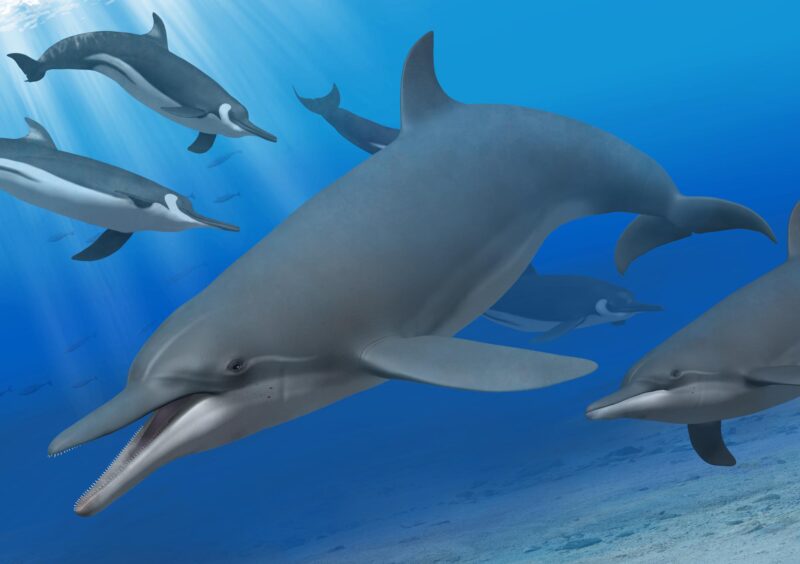Archaeologists discover earliest known and earliest diverging oceanic dolphin

Artist's impression of Norisdelphis annakaensis
Archaeologists have made a remarkable find of the earliest known and earliest diverging oceanic dolphin (Delphinidae) ever discovered.
Renderings of the cranium of the new species, was collected from an outcrop along the Usui River, in Japan.
This new species has been named Norisdelphis annakaensis by the expert team, who have published their findings in the Journal of Vertebrate Paleontology.
Norisdelphis annakaensis would have been found in our seas during the the late Miocene, Tortonian period (circa 11.29–11.25 million years ago). The oldest previous fossil finds of a Delphinidae (Eodelphinus kabatensis), was from the upper Miocene era (circa 9 million years ago).
The lead author of the study Toshiyuki Kimura, from the Gunma Museum of Natural History, says: “The Miocene fossil record of well-diagnosed delphinids is quite scarce. Until the present study, Eodelphinus kabatensis was the oldest described delphinid, and other reliably dated and described fossil delphinids were not older than the Pliocene.
“Norisdelphis annakaensis is the oldest convincingly dated and well-diagnosed delphinid species yet described.
“It differs from other specimens found by having transversely narrower nasals and frontals at the vertex.”
The expert team note that additional discoveries of such contemporaneous Miocene delphinidans will further help elucidate the evolutionary history of the faunal and niche turnover from archaic kentriodontids to modern delphinoids that occurred in the Miocene oceans.

 China
China